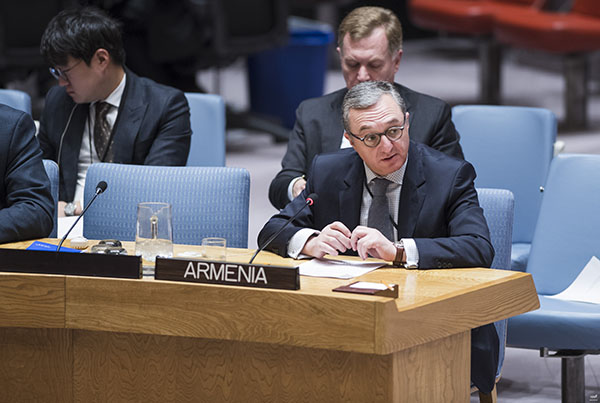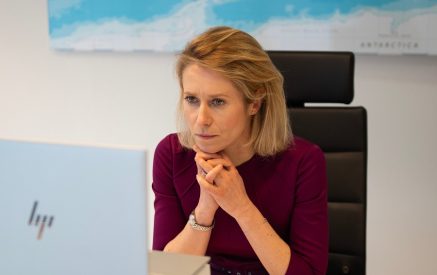On February 21, the UN Security Council held an open debate titled “Maintenance of international peace and security: conflicts in Europe”. With Ukraine’s Foreign Minister Pavlo Klimkin presiding, the meeting sought to assess existing threats to regional and international peace and security caused by conflicts in Europe. It was also intended to review responses to ongoing instability and too dangerous developments within European countries in post-conflict or protracted conflict situations.
At the meeting’s outset, a minute of silence was observed in memory of the Permanent Representative of the Russian Federation Vitaly Churkin, followed by statements in his tribute.
Opening remarks were delivered by the UN Secretary-General Antonio Guterres, the Secretary-General of the Organization for Security and Cooperation in Europe (OSCE) Lamberto Zannier, as well as the Secretary-General of the European External Action Service (EEAS) Helga Schmid, highlighting the UN’s work with such regional mechanisms as the OSCE and the European Union in tackling the unresolved conflict situations in Europe. It was pointed out that no single factor could be blamed for conflicts in Europe, and that, in certain cases, agreements were simply not being implemented.
During the meeting, speakers exchanged views on the situations in Cyprus, Ukraine, Moldova and South Caucasus, including on the Nagorno-Karabakh conflict, while many called for a full implementation of the previously agreed measures and underscored the importance of the regional dimension, and as well the need for greater conflict-prevention efforts.
Read also
The Permanent Representative of Armenia to the UN, Ambassador Zohrab Mnatsakanyan delivered a statement, highlighting that what identifies the Nagorno Karabakh conflict is a struggle for human rights, freedom and self-determination, in light of historical injustice and persistent discrimination. “It is a struggle, which witnessed barbaric pogroms against Armenians in Baku, Sumgait, Kirovabad and other parts of Azerbaijan as a reaction to the legitimate aspirations of the people of Nagorno Karabakh to freely determine their future. It is a struggle for self-defence and physical survival of the people of Nagorno Karabakh as a result of an outright aggression, war and ethnic cleansing. It is a struggle against barbarity of a regime, which ruthlessly glorifies Ramil Safarov, a murderer, who in 2004 axes to death an Armenian officer while asleep, during a military training course. It is a struggle against a claim of jurisdiction by a regime, which persistently cultivates and inspires Armenophobia, hatred and intolerance against Armenians. It is a struggle for freedom and survival”, – explained the Armenian Ambassador.
Referring to the renewed attempt of aggression by Azerbaijan against Nagorno Karabakh at the beginning of April 2016 and ensuing perpetration of atrocities and outright barbarity, Ambassador Mnatsakanyan noted that the Armenian side has consistently informed the Council, and that the international community should forcefully reject the use of force and any pursuit of a military solution to this conflict. It was highlighted that instead, immediate and genuine steps should be undertaken towards the implementation of the agreements reached at the summits in Vienna and St. Petersburg in May and June 2016, in order to create conditions conducive to the advancement of the peace process. In conclusion, the Armenian Ambassador expressed deep appreciation to the international community, to the Security Council and to the Secretary-General of the United Nations for their continued and unwavering support to the efforts of the OSCE Minsk Group co-chairs, the only internationally agreed format of negotiations for the peaceful settlement of the Nagorno Karabakh conflict, to reach a lasting settlement as soon as possible.





















































